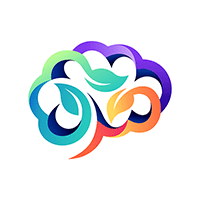Structure of the National Curriculum for ICT
Programmes of Study:
The programmes of study highlight the content that students are expected to learn. These programmes specifically illustrate what students should learn about ICT across key stages 1, 2, 3, and 4. When organizing their curriculum, schools should base their approach on these programmes and must also consider the overarching teaching requirements, including:
- Inclusion principles
- Effective use of language
- Implementing information and communication technology
- Health and safety considerations
The content in the programmes of study focuses on four primary aspects of ICT, wherein students should demonstrate progression:
- Discovering and Researching: This encompasses exploring and retrieving information.
- Idea Development and Implementation: This involves leveraging ICT tools to create and innovate.
- Communication: Students learn how to share and exchange information effectively.
- Evaluation: This requires students to regularly assess, modify, and refine their work.
The “Breadth of Study” section further elaborates on these aspects by detailing the variety of information sources and ICT applications students should explore and utilize.
For practical implementation, schools might benefit from the DfEE/QCA exemplar schemes for key stages 1, 2, and 3. These can guide schools in converting the official programmes of study into actionable and efficient teaching plans.
Attainment Target and Level Descriptions:
The attainment target for ICT establishes the benchmarks for what students, with varying abilities and maturity levels, should achieve by the conclusion of each key stage. It comprises eight distinct level descriptions that escalate in complexity, with an additional description representing exceptional performance beyond level 8. Each level describes the typical range of skills and knowledge that students at that level should display.
In the domain of ICT capability, these level descriptions map out the progression in the four aspects, as detailed in the programmes of study. These descriptions serve as foundational guidelines for evaluating student performance at the conclusion of key stages 1, 2, and 3. By key stage 4, however, the primary mode of assessment shifts to national qualifications, reflecting students’ proficiency in ICT.
| Range of levels within which the great majority of pupils are expected to work | Expected attainment for the majority of pupils at the end of the key stage |
| Key stage 1 [1—3] | at age 7 [2] |
| Key stage 2 [2—5] | at age 11 [4] |
| Key stage 3 [3—7] | at age 14 [5/6] |
Assessing Attainment at the End of a Key Stage
When evaluating a student’s level of attainment at the end of a particular key stage, educators should identify the description that best represents the student’s performance. During this assessment, it’s essential to compare each description with the ones from the preceding and succeeding levels.
Specific instructions for official assessment at the close of every key stage are comprehensively detailed in QCA’s yearly booklets related to assessment and reporting procedures.
Learning Across the National Curriculum
ICT holds significant relevance in the educational journey of students. The handbooks designed for primary and secondary educators also provide a broad overview of how the National Curriculum can foster cross-curricular learning, particularly in areas like spiritual, moral, social, cultural development, critical thinking skills, and key skills. The instances below exemplify the specific ways in which ICT instruction can enhance cross-curricular learning.
Promoting Spiritual, Moral, Social, and Cultural Development Through ICT:
- Spiritual Development: ICT facilitates discussions allowing students to contemplate how its limitations highlight human distinctiveness, and to recognize their own and others’ creative capabilities.
- Moral Development: Students can weigh the ethical implications of misusing information, understanding the expansive impact of ICT, and appreciating the enhanced responsibility its usage necessitates.
- Social Development: Deliberations on how ICT enhances communication, reshapes lifestyles, employment sectors, and communities can be initiated.
- Cultural Development: ICT enables discussions on how information is shaped by cultural contexts, the interconnectivity of global communities, and understanding diverse cultures via internet resources.
Promoting Key Skills Through ICT:
ICT offers avenues for students to hone:
- Communication Skills: Through writing, reading, face-to-face and online discussions, and critiquing self and peer work.
- Application of Number: Engaging with quantitative datasets and mathematical models.
- IT Skills: Adhering to ICT study programs, especially the one aligned with the key stage 4 IT unit.
- Collaborative Skills: Through group projects, peer reviews, and online collaborations.
- Self-improvement Skills: Regular evaluation and refinement of ongoing work.
- Problem-solving Skills: Using ICT to model real-world situations and devise solutions.
Promoting Other Aspects of the Curriculum:
ICT also amplifies:
- Thinking Skills: By assisting students in identifying information sources, ideating, and collaborative problem-solving.
- Enterprise Skills: Encouraging students to design and implement real-world solutions.
- Work-related Learning: Introducing students to diverse ICT tools and techniques.
- Sustainable Development Education: Enhancing understanding of ICT’s influence on the professional world, society, and environment.
Note: The terms “programme of study” and “attainment target” have been defined by the Education Act 1996, emphasizing the matters, skills, and processes that should be imparted to students during a key stage.
